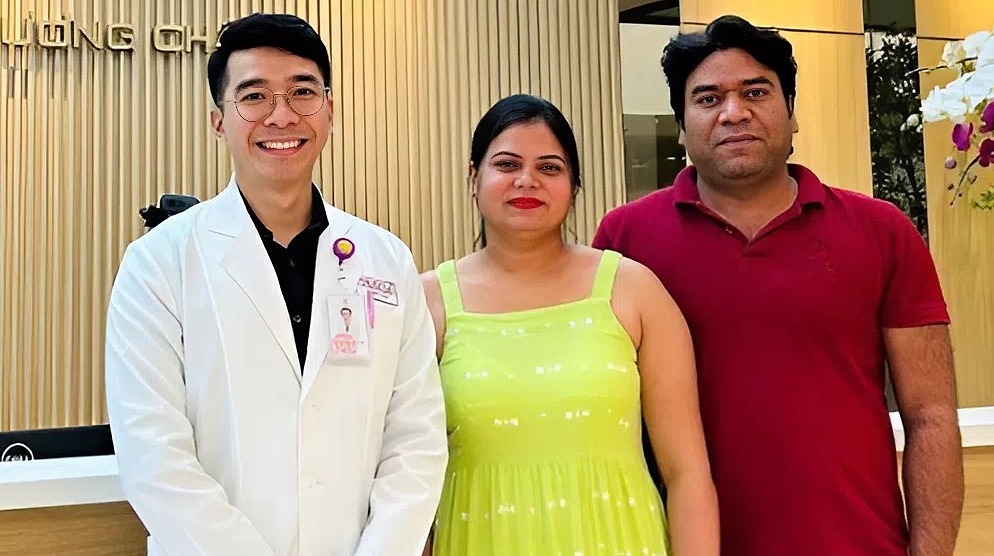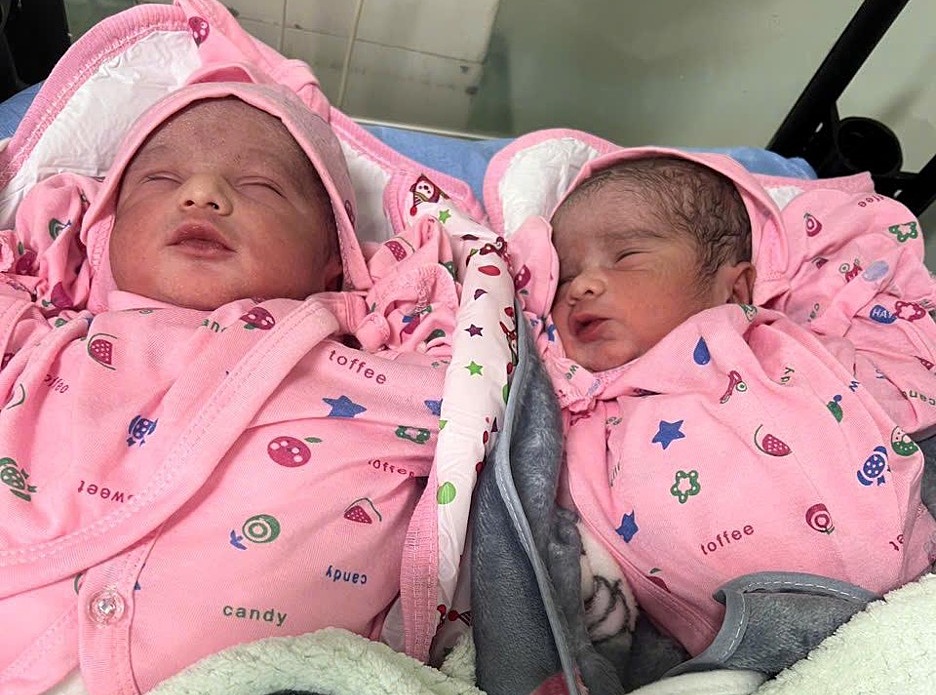In 2018, the wife underwent laparoscopic surgery to remove an ovarian cyst in China. While successful, the surgery impacted her ovarian reserve. She also manages Hashimoto's thyroiditis, an autoimmune disease, and polycystic ovary syndrome (PCOS), a hormonal disorder affecting ovulation.
The husband's tests revealed poor sperm quality and high abnormality rates, making natural conception improbable. For 6 years, they sought treatment and underwent numerous tests in various locations, but their dream of parenthood remained elusive.
"I chose Vietnam because I read about its high success rates in infertility treatment, even in complex cases," the wife explained. "It's also more affordable, and the hospital staff provided thorough guidance and support, even remotely."
 |
The couple during their treatment in Vietnam. Photo courtesy of the hospital |
The couple during their treatment in Vietnam. Photo courtesy of the hospital
On 24/7, Dr. Nguyen Thanh Dat of Phuong Nam Hospital, noted that while they receive many international patients, this couple's case was particularly memorable due to their challenging journey.
The medical team made two unsuccessful attempts at transferring high-quality 5-day embryos. The couple, almost losing hope, considered stopping treatment. The doctors then discussed a final option: transferring the two remaining 2-day embryos.
"It was a difficult decision," Dr. Dat admitted.
Theoretically, 2-day embryos have lower success rates. However, this was their only remaining chance, as the embryos might not survive to day 5. The team hoped the uterine environment would be more conducive to embryo development than the lab. Fortunately, the wife conceived twins.
According to Dr. Dat, the combination of endocrine, immune, and metabolic disorders from Hashimoto's and PCOS created an unfavorable environment for egg production, embryo development, and implantation. Coexisting conditions increase the risk of ovulation disorders, abnormal responses to ovarian stimulation drugs, and impact egg quality, reducing viable embryos.
Dr. Dat explained that this case required a personalized IVF treatment strategy, including careful thyroid management, insulin resistance regulation, and a tailored ovarian stimulation protocol to avoid overstimulation and ensure optimal egg quality. Effectively managing these underlying conditions improved IVF success rates, reduced obstetric complications, and ensured a healthy pregnancy after embryo transfer.
 |
The twin girls born at a hospital in India. Photo courtesy of the family |
The twin girls born at a hospital in India. Photo courtesy of the family
After 12 weeks of prenatal care in Vietnam, the joyful couple returned to India. Recently, their twin girls were born healthy at Vardman Hospital in Muzaffarnagar, India, doubling their joy and concluding their long journey.
In recent years, Vietnam has become a sought-after destination for assisted reproduction, attracting patients even from developed countries due to its skilled doctors and lower costs. Vietnam offers the latest global techniques and is a pioneer in CAPA-IVM (in vitro maturation of immature oocytes). Many Vietnamese assisted reproduction centers and labs hold international quality certifications.
Le Phuong












